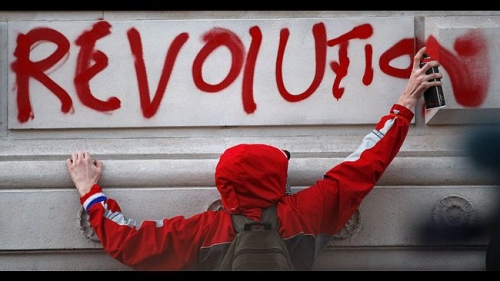The people’s initiative is a powerful tool in the hands of Swiss voters enabling them to effect change from below against the will of parliament and government. Most initiatives are defeated at the polls. Yet they often have a real influence on politics.
On November 26, 1989, Swiss politicians got a shock. The people were voting on a proposal to abolish the army.In the end, the proposal from a citizens’ group was turned down. There was consternation and indignation, however, about the amount of support the initiative proposal received in spite of the radical nature of the proposal: 36% of voters came out in favour of getting rid of the Swiss army altogether.
It seems to be paradoxical. A 64% rejection for an initiative means a drubbing for the promoters of the proposal, you could argue.
But not in this case. To the military and political elites, it felt like a drubbing for them that over a third of the voters wanted to get rid of the army.
The result had consequences, too: after that the army, which had been regarded as a “sacred cow” throughout the Cold-War era, was treated with much less consideration.
In Pearls and Irritations recently, Elizabeth Evatt (Why not protect all our rights and freedoms?) called for a Human Rights Act to protect all our rights and freedoms and not just freedom of religion.
The issue of freedom of religion is being examined by Phillip Ruddock and his ‘expert panel’. This issue is also being examined by a Joint Standing Committee on Foreign Affairs, Defence and Trade. Continue reading

What do leaking spooks, a dashed Dastyari and a dubious donor say about our most important trade partner? Continue reading
Yanis Varoufakis writes on “Taking the Red Pill or the Blue Pill” in the Journal of Political Economy.
Why Rupert’s Really Splitting Up the Family Business – Michael Wolff
“People on low incomes are sacrificing basic goods to take out insurance” – the Conversation.
Washington Post – “…inquiries into how fast wealth grows relative to the economy have been hampered by a lack of good, complete, comparable long-term data on the rates of return for various assets: stocks, bonds, real estate and the like. You’d want this to know what you’d expect a “natural” rate of return to be in an economy such as ours: How much would you expect home prices to appreciate over time? What about the expected return on the stock market over the decades? How about government bonds? Now a working paper, written by Federal Reserve Bank of San Francisco economist Òscar Jordà and others, purports to calculate just that: “The Rate of Return on Everything.” After compiling this first-of-its-kind data set, Jordà’s team makes a startling conclusion: If anything, Piketty’s book underestimates the historical rate of return on wealth. “The same fact reported [by Piketty] holds true for more countries and more years, and more dramatically,” the researchers conclude. Wealth accumulates faster — much faster — than economies can keep up. If this is true, it means that in coming years, wealth inequality could grow even faster than Piketty feared. The gap between wealth accumulation and economic growth has been a constant feature of the world’s most advanced economies for nearly the entire period from 1870 to 2015, the researchers found. They compiled a database of the annual rate of return on four major types of wealth: government bonds, treasury bills, stocks and residential real estate…”

Looming in the New Year is debate over the Government’s anti-lobbying legislation, dressed up as a move against foreign influence. Fairfax journalist Peter Martin warns that if the Coalition gets its way, when the next election comes around charities would be prevented doing anything that may be seen as attempting to influence how people vote. (The Murdoch media, although it is foreign-owned, and the Minerals Council would still be fee to influence how people vote, because they are not charities.) ABC political reporterAnna Henderson comments on the government’s appointment of former Keating-era Labor MP Gary Johns as the new charities commissioner, “a staunch critic of charities that conduct public advocacy work”.